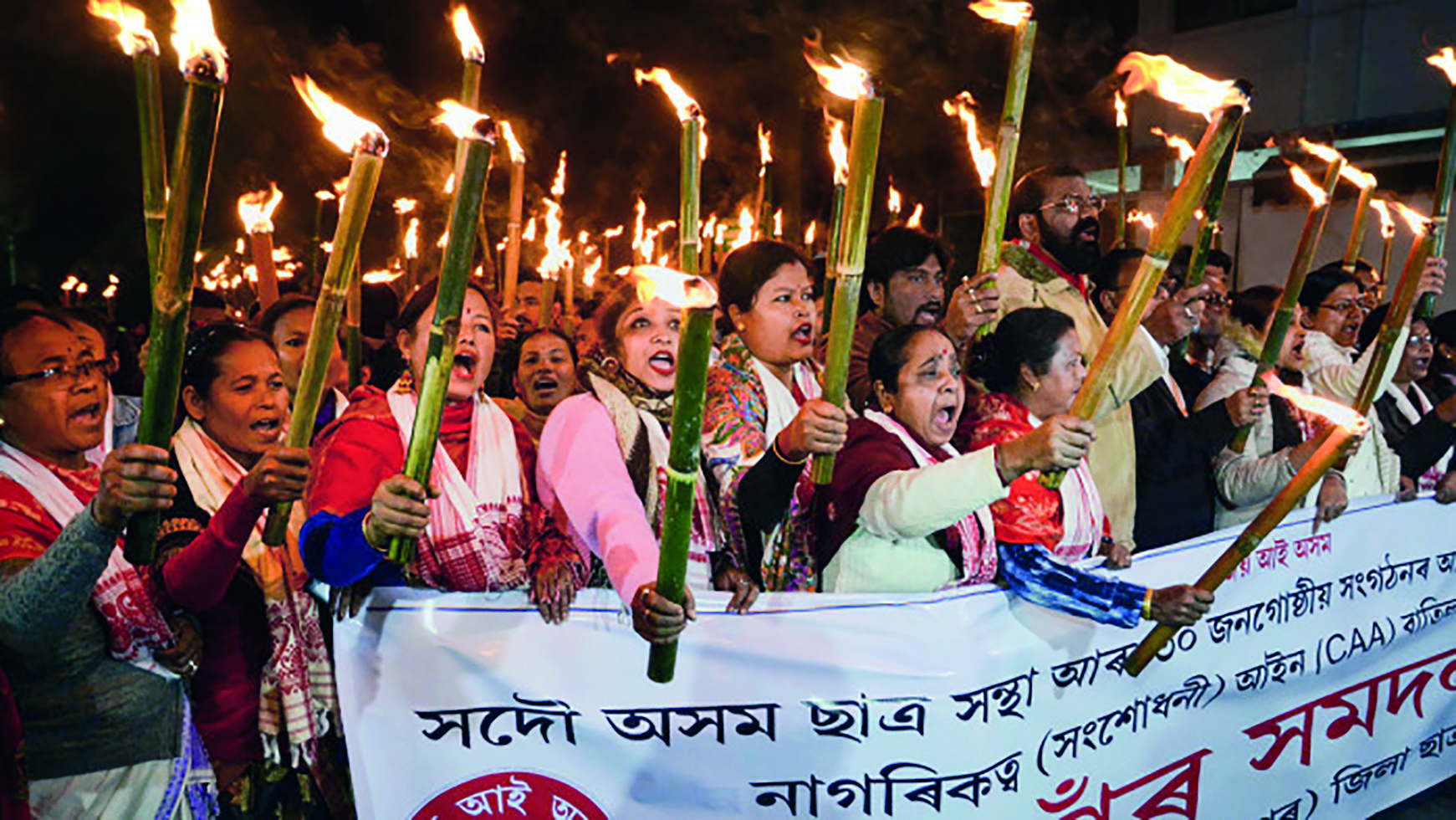Festering wounds of 2019 CAA protests keep citizenship issue alive in Assam

Guwahati: Widespread protests in Assam after the enactment of CAA on this day three years ago have left behind a festering wound that has kept the citizenship issue alive in the northeastern state sharing a long border with Bangladesh.
The BJP government at the Centre asserts that the Citizenship (Amendment) Act, 2019 will be implemented but is yet to frame the rules, leading to allegations from various quarters that the saffron party is using it as a "political card" to polarise the nation.
The Citizenship Act, 1955 was amended to provide citizenship to Hindu, Sikh, Buddhist, Jain, Parsi and Christian religious minorities fleeing persecution from Pakistan, Bangladesh and Afghanistan and seeking refuge in India till 2014.
The Opposition protested the Act as being based on religious criteria and wanted it to be amended.
The protests against the Act in Assam were led by the All Assam Students Union (AASU) and the Krishak Mukti Sangram Samiti (KMSS) but the stir was different from those in other parts of the country as agitators asserted that the state cannot be a dumping ground for foreigners irrespective of their religion.
The agitation in Assam had turned violent, with five people losing their lives in police firing and KMSS leader Akhil Gogoi and four others being arrested. The stir was called off with the onset of the COVID-19 pandemic.
In the aftermath of the agitation, two new political parties – Assam Jatiya Parishad (AJP) led by the then AASU leader Lurinjyoti Gogoi and Raijor Dal headed by Akhil Gogoi were born in Assam. "The BJP uses CAA as a political tool, particularly during elections, and it has not framed the rules as it wants to keep the 'foreigners' issue' alive in Assam. What's worse is that the party has brought a communal angle through the Act with its narrative 'Hindu khatre mein hain' (Hindus are in danger)," AJP president Gogoi told.
The CAA has made the Assam Accord and the National Register of Citizens (NRC) irrelevant, he claimed.
"The Centre must give constitutional safeguards to Assam like those accorded to other northeastern states against further settlement of 'foreigners'," Raijor Dal working president Bhasco de Saikia said.
"We are firm on our opposition to the Act which we consider to be a part of the BJP's communal politics and if they frame the rules, the 'foreigners' should be taken to other states," Saikia said. MPOSTGuwahati: Widespread protests in Assam after the enactment of CAA on this day three years ago have left behind a festering wound that has kept the citizenship issue alive in the northeastern state sharing a long border with Bangladesh.
The BJP government at the Centre asserts that the Citizenship (Amendment) Act, 2019 will be implemented but is yet to frame the rules, leading to allegations from various quarters that the saffron party is using it as a "political card" to polarise the nation.
The Citizenship Act, 1955 was amended to provide citizenship to Hindu, Sikh, Buddhist, Jain, Parsi and Christian religious minorities fleeing persecution from Pakistan, Bangladesh and Afghanistan and seeking refuge in India till 2014.
The Opposition protested the Act as being based on religious criteria and wanted it to be amended.
The protests against the Act in Assam were led by the All Assam Students Union (AASU) and the Krishak Mukti Sangram Samiti (KMSS) but the stir was different from those in other parts of the country as agitators asserted that the state cannot be a dumping ground for foreigners irrespective of their religion.
The agitation in Assam had turned violent, with five people losing their lives in police firing and KMSS leader Akhil Gogoi and four others being arrested. The stir was called off with the onset of the COVID-19 pandemic.
In the aftermath of the agitation, two new political parties – Assam Jatiya Parishad (AJP) led by the then AASU leader Lurinjyoti Gogoi and Raijor Dal headed by Akhil Gogoi were born in Assam. "The BJP uses CAA as a political tool, particularly during elections, and it has not framed the rules as it wants to keep the 'foreigners' issue' alive in Assam. What's worse is that the party has brought a communal angle through the Act with its narrative 'Hindu khatre mein hain' (Hindus are in danger)," AJP president Gogoi told.
The CAA has made the Assam Accord and the National Register of Citizens (NRC) irrelevant, he claimed.
"The Centre must give constitutional safeguards to Assam like those accorded to other northeastern states against further settlement of 'foreigners'," Raijor Dal working president Bhasco de Saikia said.
"We are firm on our opposition to the Act which we consider to be a part of the BJP's communal politics and if they frame the rules, the 'foreigners' should be taken to other states," Saikia said.



